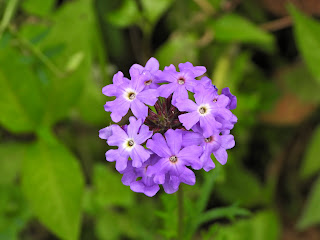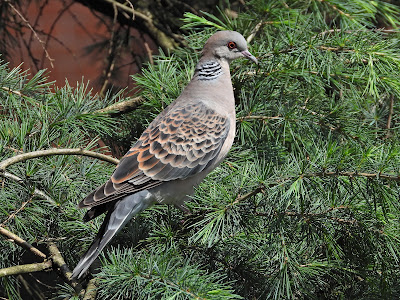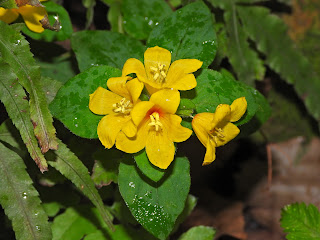. . . I am looking over the sea and endeavouring to reckon up the estate I have to offer you. As far as I can make out my equipment for starting on a journey to fairyland consists of the following items.Maisie Ward, Gilbert Keith Chesterton (New York: Sheed & Ward, 1943), pp. 94-96 [From a letter from Chesterton’s to his fiancée Frances Blogg].
1st. A Straw Hat. The oldest part of this admirable relic shows traces of pure Norman work. The vandalism of Cromwell’s soldiers has left us little of the original hat-band.
2nd. A Walking Stick, very knobby and heavy: admirably fitted to break the head of any denizen of Suffolk who denies that you are the noblest of ladies, but of no other manifest use.
3rd. A copy of Walt Whitman’s poems, once nearly given to Salter, but quite forgotten. It has his name in it still with an affectionate inscription from his sincere friend Gilbert Chesterton. I wonder if he will ever have it.
4th. A number of letters from a young lady, containing everything good and generous and loyal and holy and wise that isn’t in Walt Whitman's poems.
5th. An unwieldy sort of a pocket knife, the blades mostly having an edge of a more varied and picturesque outline than is provided by the prosaic cutter. The chief element however is a thing ‘to take stones out of a horse’s hoof.’ What a beautiful sensation of security it gives one to reflect that if one should ever have money enough to buy a horse and should happen to buy one and the horse should happen to have a stone in his hoof--that one is ready; one stands prepared, with a defiant smile!
6th. Passing from the last miracle of practical foresight, we come to a box of matches. Every now and then I strike one of these, because fire is beautiful and burns your fingers. Some people think this waste of matches: the same people who object to the building of Cathedrals.
7th. About three pounds in gold and silver, the remains of one of Mr. Unwin’s bursts of affection: those explosions of spontaneous love for myself, which, such is the perfect order and harmony of his mind, occur at startlingly exact intervals of time.
8th. A book of Children’s Rhymes, in manuscript, called the ‘Weather Book’ about ¾ finished, and destined for Mr. Nutt. I have been working at it fairly steadily, which I think jolly creditable under the circumstances. One can’t put anything interesting in it. They’ll understand those things when they grow up.
9th. A tennis racket—nay, start not. It is a part of the new regime, and the only new and neat-looking thing in the Museum. We’ll soon mellow it—like the straw hat. My brother and I are teaching each other lawn tennis.
10th. A soul, hitherto idle and omnivorous but now happy enough to be ashamed of itself.
11th. A body, equally idle and quite equally omnivorous, absorbing tea, coffee, claret, sea-water and oxygen to its own perfect satisfaction. It is happiest swimming, I think, the sea being about a convenient size.
12th. A Heart—mislaid somewhere. And that is about all the property of which an inventory can be made at present. After all, my tastes are stoically simple. A straw hat, a stick, a box of matches and some of his own poetry. What more does man require? . . .
Commonplace Commentary
An anatomy of literature and nature.
Wednesday 8 May 2024
Journey to Fairyland
Lance-leaved Coreopsis
Lance-leaved Coreopsis (Coreopsis lanceolata, 剑叶金鸡菊).
Another beautiful but invasive flower. I have not seen many along the Xiang River but occasionally there is a patch of them growing, provided there is space for their to enjoy full sunlight, usually near overgrown margins.
Tuesday 7 May 2024
Modern Hermits
Twentieth-century hermits do not live in cells or caves; they do not live in the wilderness or in a hut in the forest. And so we imagine that there are no hermits left in the modern civilized world. Really, however, there are a great many of them, more than in the days when Christians were being martyred. Their cells are disguised; they are located in modern cities, in communal apartments, on the streets of Moscow and Kiev.Vasily Grossman, An Armenian Sketchbook, Translated by Robert and Elizabeth Chandler (New York: The New York Review of Books, 2013; 1964) p.78.
Moss Verbena
Moss Verbena (Glandularia aristigera, 苔藓马鞭草).
Originally a South American flower, sometimes it grows wild along the Xiang river: perhaps having spread from the gardens in the Yanghu Wetland Park.
Monday 6 May 2024
Oriental Turtle-Dove
Oriental Turtle-Dove (Streptopelia orientalis, 山斑鸠).
One of the two most common birds in Changsha (the other is the light-vented bulbul), which could be said for many other urban spaces in China. They are sometimes a bit finicky about being observed and liable to fly away if a camera is raised towards them. In the city and the woods one can often hear their soft 'heer-heer-ooo-ooo' call.
This one was relaxing outside my office window this morning.
An Apt Translation
Mary Shelton gives a little gasp, and flushes as if some gallant had pinched her. Jane Rochford drawls, ‘Vere dignum et justum est, aequum et salutare.’ She translates for Mary: ‘Apt.’Hilary Mantel, Wolf Hall (London: 4th Estate, 2019; 2009), p. 299.
Sunday 5 May 2024
Vocabulary and Success
A man whose brain devotes its hinterland to making odd phrases and nicknames out of ill-conceived words, whose conception of life is a lump of auriferous rock to which all the value is given by rare veins of unbusinesslike joy, who reads Boccaccio and Rabelais and Shakespeare with gusto, and uses “Stertoraneous Shover” and “Smart Junior” as terms of bitterest opprobrium, is not likely to make a great success under modern business conditions.H.G. Wells, The History of Mr. Polly (London and Glasgow: Collins, 1969), pp. 54-55.
Lema Diversa
Lema diversa (鸭跖草负泥虫).
One can easily lose oneself in the world of leaf beetles and the lema genus alone contains over 1300 species. This small but beautiful red-brown beetle came out of hiding close to sunset in the Taohualing Scenic Area, near the top of one of the parks many forested hills.
Saturday 4 May 2024
Japanese False Bindweed
Japanese False Bindweed (Calystegia hederacea, 打碗花)
Its flowers are more common in Autumn but this bindweed does sometimes bloom in Spring. Usually the petals are more pinkish than this one, but the coloration is variable.
The Company I Want
Irish Murdoch, Under the Net (London: Vintage, 2008; 1954), p. 34:
The company which I need is the company which a pub or a café will provide. I have never wanted a communion of souls.
Friday 3 May 2024
Dense-flowered Loosestrife
Dense-flowered Loosestrife (Lysimachia congestiflora, 临时救).
An easy flower to find in May in Changsha on the edges of forests and the fringes of mountains. Its yellow flowers are brighter than buttercups.
The Evolution of Grievances
An age was occupied in proving a grievance, and philosophical researches were printed in folio pages, which it took a life to write, and an eternity to read. We get on now with a lighter step, and quicker: ridicule is found to be more convincing than argument, imaginary agonies touch more than true sorrows, and monthly novels convince, when learned quartos fail to do so. If the world is to be set right, the work will be done by shilling numbers.Anthony Trollope, The Warden (Oxford: Oxford University Press, 2008; 1855), p. 105-6.
Thursday 2 May 2024
Iris by the Xiang River
Every Spring hundreds of irises bloom in the mudflats by the Xiang River approximately one kilometre south of Taozi lake. Every year I look forward to seeing them in bloom. Yellow irises (iris pseudacorus) are fairly common and there are a pinks and whites ones that so far are a taxonomic mystery to m, but by far the most common are these vibrant purple irises: they have been described to me as some member of the subgenus limniris or as 'Louisiana irises'; whatever they are they are delightful.
Literature is the Sum of its Discoveries
Literature is the sum of its discoveries. What is derivative can be impressive and intelligent. It can give pleasure and it will have its season, short or long. But we will always want to go back to the originators. What matters in the end in literature, what is always there, is the truly good.






